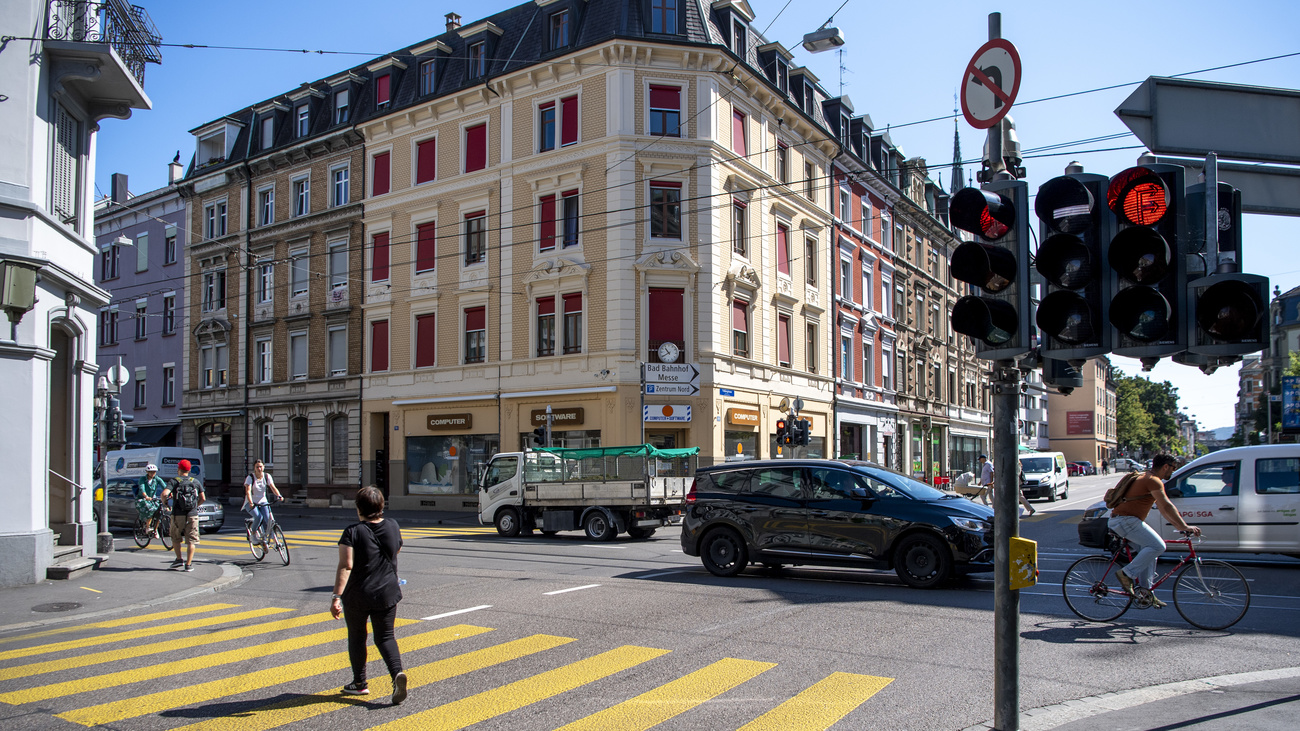
Basel to roll out environmentally friendly asphalt

The authorities in canton Basel City in northwest Switzerland plan to introduce “green” asphalt containing biochar, made from organic waste, to surface local roads to “considerably” reduce their carbon footprint.
This “high-quality” road surfacing has been tested and the results are “extremely positive”, Esther Keller, head of the Basel City’s department of public works and transport, told reporters on Tuesday.
As part of a trial last year, a surface area of recycled construction materials was covered with a layer of asphalt which contained 50% recycled asphalt and 2-3% biochar.
+ Concrete: the building material of the 20th century
The authorities calculated that the 450m2 area was able to capture 1.5 tonnes of CO2 more than was emitted during the extraction, manufacture, transport and tarmac-laying processes.
The canton, which aims to become carbon neutral by 2037, plans to use the environmentally friendly asphalt “as widely as possible” when repairing roads. This should enable it to store 1,250 tonnes of CO2 every year, i.e., 450 tonnes more than the CO2 emitted in the production of the asphalt.
+ Climate crisis accelerates CO2 emissions from soil microbes
This kind “CO2 negative” process is slightly more expensive than conventional asphalt, said Dominik Born, who developed the project at Basel-City’s industrial services (IWB). IWB produces biochar from organic waste such as trees.
The “CO2-negative” asphalt was developed in collaboration with the materials technology institute ViaTec Basel.

In compliance with the JTI standards
More: SWI swissinfo.ch certified by the Journalism Trust Initiative





























You can find an overview of ongoing debates with our journalists here . Please join us!
If you want to start a conversation about a topic raised in this article or want to report factual errors, email us at english@swissinfo.ch.